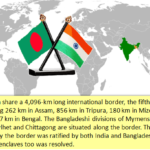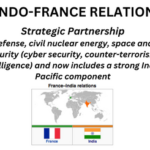Kozhikode and Gwalior part of UNESCO’s Creative Cities Network (UCCN): Basics Explained

India’s two cities are among the 55 new cities to join the network of. UNESCO’s Creative Cities Network (UCCN). The two city are Kozhikode in Kerala and Gwalior from Madhya Pradesh Kozhikode was included in the category of literature and Gwalior in the category of music. The North Kerala city of Kozhikode is home to many prominent personalities of the state’s literary and cultural world.
Gwalior gharana, the oldest musical gharana and a significant chapter of Hindustani classical music’s history flourished under the aegis of Raja Man Singh Tomar during the 15th century. Man Singh invented dhrupad, in a classical genre sense. His Horis and Dhamars also became quite popular.
Apart from the above new cities Varanasi (music), Srinagar (crafts and folk arts) and Chennai (music) are part of the network.
UNESCO:
The UNESCO Creative Cities Network allows member cities to recognise creativity as an essential component of urban development, notably through partnerships involving the public and private sectors and civil society. There are exchanges at the level of the member cities and at the international level, notably through sharing experiences, knowledge and best practices. There are professional and artistic exchange programmes, research and evaluations on the experience of the creative cities, among other activities.
In 1945, UNESCO was created in order to respond to the firm belief of nations, forged by two world wars in less than a generation that political and economic agreements are not enough to build a lasting peace. Peace must be established on the basis of humanity’s moral and intellectual solidarity. strives to build networks among nations that enable this kind of solidarity,
Mobilizing for education: so that every child, boy or girl, has access to quality education as a fundamental human right and as a prerequisite for human development.
Building intercultural understanding: through protection of heritage and support for cultural diversity. UNESCO created the idea of World Heritage to protect sites of outstanding universal value.
Pursuing scientific cooperation: such as early warning systems for tsunamis or trans-boundary water management agreements, to strengthen ties between nations and societies.
Protecting freedom of expression: an essential condition for democracy, development and human dignity.
UNESCO is known as the “intellectual” agency” of the United Nations. Audrey Azoulay is the current director general of UNESCO.






0 Comments